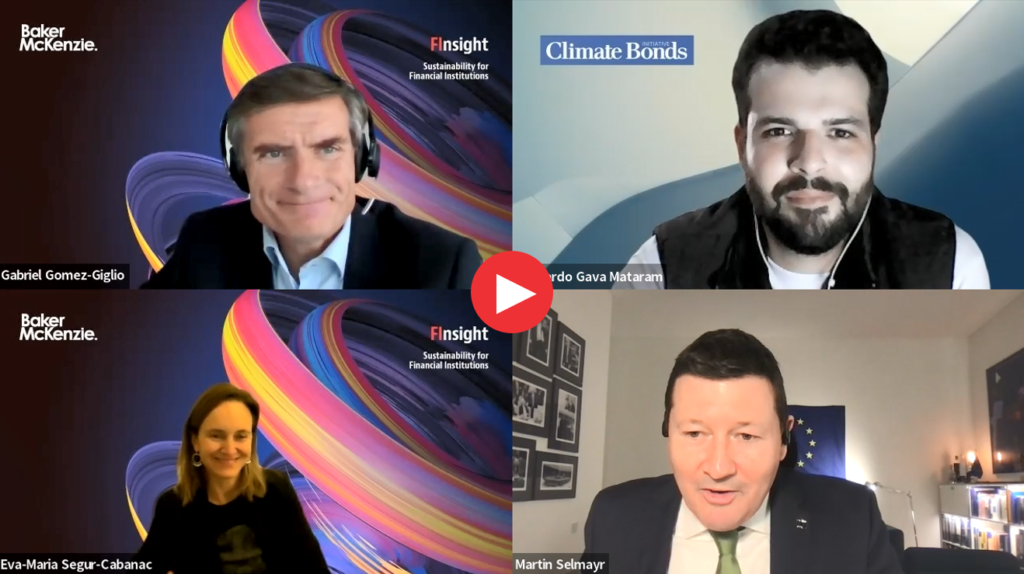What is Latam’s perspective on sustainability for financial institutions? This was the subject of the opening client webinar in Baker McKenzie’s new FInsight series on Sustainability for Financial Institutions — Global Trends. Keynote speakers were Martin Selmayr, former chief of staff to the then president of the European Commission, Jean-Claude Juncker, and secretary general to the commission, and Leonardo Gava from the Climate Bonds Initiative (CBI). The session was led by Baker McKenzie’s Gabriel Gomez Giglio, regional financial institutions group chair, and Eva-Maria Segur Cabanac, ESG sector lead for financial institutions.

Combating global greenhouse emissions and implementing the transition to net-zero requires unprecedented financial investment. Financial institutions are critical players because of their role in allocating capital and ability to act as a catalyst to achieve better ESG outcomes in society generally. Market and investor expectations and commitments around sustainable finance and ESG considerations are changing the way global businesses operate and the very heart of decision-making. In addition to financing green economic activities, including renewables and recyclables, attention is now turning to the challenge of “transition finance,” which is helping to transition the higher emissions and hard-to-abate sectors in the economy to sustainability or net-zero.
Martin Selmayr spoke about the EU’s experience, where it is at the vanguard internationally, having introduced ESG legislation, especially for the financial sector. Under the EU’s Sustainable Finance Action Plan and its Green Finance Package, there is now a system of classifying economic activities against their environmental impact (via a taxonomy), corporate reporting and disclosure regimes, all of which help investors make ESG choices. Most recently, the NextGenerationEU initiative is establishing an ambitious EUR 350 billion green bond issuance program to finance the green transition and create a green capital markets union in Europe.
In turn, Leonardo Gava from the CBI gave an overview of the ESG market landscape in Latam. The message he conveyed is that the incorporation of ESG guidelines into investment decision is on the rise. There is considerable growth in the issuance of sustainable finance instruments and policy-making. While Latam only accounts for 2% of global sustainable finance issuances, these have risen over the last two years from USD 100 billion to USD 150 billion a year. While sustainable (use of proceeds) bonds are still the most common, there is now an increasing emphasis on transition financing with the growth of sustainability-linked bonds and transition-labeled bonds. Like the EU, Latam countries are publishing their own national taxonomies, which for example, for agriculture, reflect different regional crops and ecosystems. As the challenge in Latam is how to deploy capital to high-risk sectors such as agriculture, forestry and construction, the development of usable taxonomies is essential.
In the course of the discussion, the keynote speakers considered questions such as what can Latam learn from the EU’s experience, the role of the International Platform on Sustainable Finance in scaling up the mobilization of private capital toward sustainable investments, the challenge of fragmented and divergent regulation, and the principal ESG challenges for financial institutions in each region? You can view the recording on BakerMcKenzie.com.



